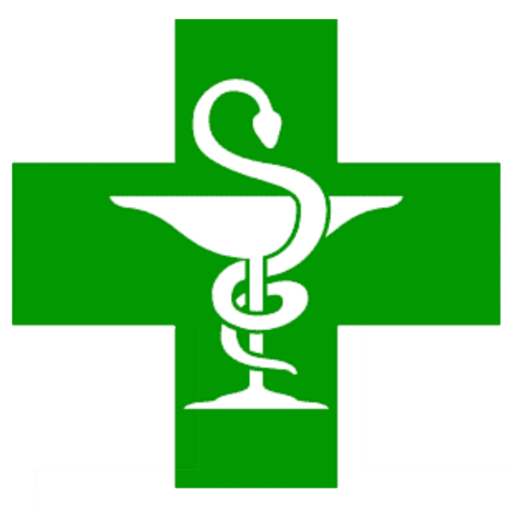Traveller's Diarrhea and Cholera Vaccine
Traveller’s diarrhea is frequent, loose, or watery bowel movements usually from eating or drinking contaminated foods or fluids. Symptoms may also include stomach cramps, nausea, vomiting, bloating and feeling unwell. Symptoms can begin suddenly and last 3 to 5 days.
The most common cause of traveller’s diarrhea is food or water contaminated with bacteria called enterotoxigenic E. coli (ETEC). Food can also be contaminated when stool is used as fertilizer, or when contaminated water is used to spray vegetables in market stalls.
Cholera is a bit more serious, and sometimes life-threatening in a few cases, infection caused by the bacteria Vibrio cholerae. People infected may have no symptoms or only mild diarrhea. However, others can develop very severe, watery diarrhea and vomiting. Without treatment, this can lead to severe dehydration and death.
If you are travelling our pharmacists would be able to advise as to when you should receive the vaccine. A booster dose may be required if you continue to travel or work in these areas. The vaccine gives you some protection against traveller’s diarrhea and cholera, which are infections caused by 2 types of bacteria.
Hepatitis B
The hepatitis B virus (HBV) is spread through contact with infected blood or bodily fluids. The virus usually passes into a host via damaged skin (eg, lesions, needlesticks) or mucous membranes, such as the eyes or genitalia. HBV is viable for at least 7 days outside a host; therefore, the virus can be spread for days in areas visited by an infected individual. HBV can incubate for 40 to 90 days before signs and symptoms are detected.
At Ranchland Pharmacy we can provide a course of the vaccine that provides long-term protection from hepatitis B.
Hepatitis A
Hepatitis A is a virus that is transmitted person to person through the fecal-oral route or by consuming contaminated food or water. Unlike hepatitis C, hepatitis A does not cause chronic infection and is a self-limiting disease that typically resolves in 2 months. Those infected with hepatitis A will experience symptoms of fatigue, low appetite, stomach pain, nausea, and jaundice (present in over 70% of older children and adults). In children, most infections are asymptomatic.
This vaccine is used for the prevention of disease caused by the hepatitis A virus in persons 12 months of age and older. The primary dose should be given at least 2 weeks prior to expected exposure to HAV Rundle Pharmacy can administer a course of hep A vaccine shots that will give protection against hepatitis A.
Rabies
Rabies is a very serious viral infection that targets the brain and nervous system. You can catch rabies if you are bitten by an infected animal and haven’t been vaccinated. It’s almost always fatal once symptoms develop, but can be prevented if treatment is given promptly after exposure. Although rabies is unlikely, you should also seek immediate medical help if you’re bitten or scratched by a pet that has travelled abroad and has an uncertain vaccination history.
It can take a while for symptoms to develop, but when they do the condition is almost always fatal.
Symptoms in humans can include:
- * High temperature (fever)
- * An irrational fear of water (hydrophobia)
- * Sensitivity to light (photophobia)
- * Fear of drafts of air (aerophobia)
- * Confusion or aggressive behavior
A number of vaccines can be used to prevent a rabies infection developing. Routine (pre-exposure) vaccination is usually only recommended if you regularly work with potentially infected animals or are travelling to a part of the world known to have high levels of rabies and limited medical care.A course of rabies vaccine can also prevent rabies from developing after a potential exposure, provided it is started promptly. Before you travel, you should seek advice about whether you need a rabies vaccination.

Yellow Fever
Yellow fever is a serious viral infection that’s spread by certain types of mosquitoes. The condition can be prevented with vaccination and is a very rare cause of illness in travelers. Six travelers from Europe and North America have died from yellow fever since 1996. The virus that causes yellow fever is passed to humans through the bites of infected mosquitoes. The mosquitoes that spread the infection are usually active and bite during daylight hours, from dusk until dawn, and are found in both urban and rural areas. Yellow fever can’t be passed directly from person to person through close contact.
The symptoms of yellow fever occur in two stages. The initial symptoms develop three to six days after infection, and can include:
- * High temperature (fever)
- * Headache
- * Nausea or vomiting
- * Muscle pain, including backache
- * Loss of appetite
The vaccination against yellow fever should be given at least 10 days before travelling to an area where the infection is found, to allow your body to develop protection against the virus that causes the infection. Some countries require proof of vaccination certificate before they will let you enter the country. This will only become valid 10 days after you are vaccinated.
Japanese Encephalitis
Japanese Encephalitis is a viral infection that affects the brain. It is most common in rural areas of South East Asia, Pacific Islands and the Far East however it rarely presents itself in travellers. Unfortunately, there is no cure for Japanese Encephalitis other than infected persons being admitted into hospital for the purposes of treating the symptoms whilst the body fights off the infection. Japanese Encephalitis is a virus that is transmitted through mosquito bites. Pigs and water birds are the acting sources of the virus and these are the animals that mosquitos feed of. Different times of the year make the transmission rate decrease, rainy seasons being the highest at risk.
The vaccination is given as an injection and requires two doses for full protection, with the second dose given 28 days after the first. Booster at 12 months if at continuous risk.
All others, boost between 12-24 months.







